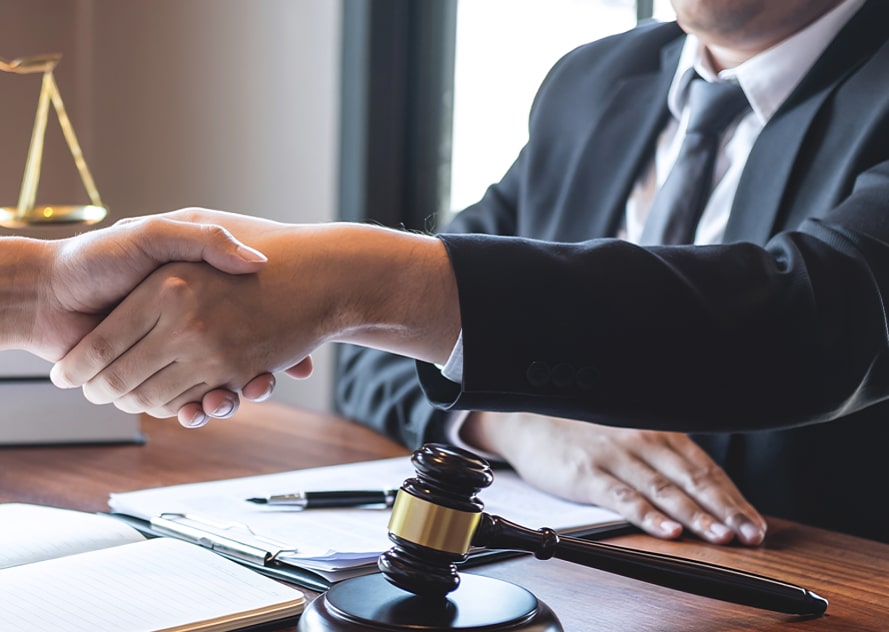It all begins when the police or 911 receive a domestic violence call, maybe from the alleged victim or maybe from a neighbor. Upon arrival, there is a makeshift interview of the parties and/or witnesses where police try to decide who is the aggressor, what exactly happened, and if anyone needs to be arrested.
Sadly, it's not uncommon for the wrong person to be arrested or for a fake story to be believed and charges pressed. Police simply don't have time to figure it all out on the spot - even if they could, and they choose to err on the side of caution to make sure no one is hurt, or hurt further.
Next, a police report is filled out and a citation and court date issued to the defendant. If arrested for a felony, you may not get out of jail before your arraignment unless you pay bail.
Police will continue to investigate between the arrest and the filing of formal charges in the "pre-filing stage." Witnesses will be interviewed more fully, evidence collected, and a determination made as to whether they have "a good, winnable case." If they think they do, then the D.A. or city attorney will review the complaint and police report and file an official criminal charge.
If it's a misdemeanor allegation against you, then you might be asked to attend a city attorney hearing. At such a hearing, you may have a chance to resolve the matter informally - out of court. It could lead to a dismissal of the charge and/or to a settlement being made that would avoid a full-out criminal investigation and criminal court case. It could also end with the case being kept "on hold" for up to a year or with it being determined that a court battle is necessary after all.
At your first court date in the domestic violence case, called an "arraignment," the complaint against you will be formally presented and you will have the chance to plead "guilty" or "not guilty." If you want to go to court, plead not guilty, while if a plea deal has been worked out, you might want to plead guilty. But you have to understand the plea deal's requirements and consequences before you accept it. Also at the arraignment, the presiding judge will determine whether or not bail will be permitted and, if so, at what it shall be set. Additionally, a determination will be made in regard to establishing a protective order, and if so, what kind.
Next, there will be one or a series of pre-trial conferences that allow further opportunity for a settlement of some kind to be reached. About 95% of the time, domestic violence cases end here, in the pre-trial phase. You want an experienced lawyer arguing and negotiating in your behalf at this point because it can strengthen your case, persuade the prosecution to come to terms, and in general help achieve a more favorable result. Of course, the settlement will only be valid if you choose to agree to it.
If no settlement can be reached, then a trial date will be set. But just before the trial actually occurs, there is the chance for your lawyer to file a pre-trial motion that could help you win your case. It's possible, for example, to get evidence obtained by illegal search and seizure banned from consideration in court with a pretrial motion. Or, there might be a motion filed to allow the alleged victim's history of making false 911 calls to be brought into court. Many times, what happens pre-trial has a big impact on what happens during the trial and how it turns out in the end.
During the trial itself, both sides will present their arguments, evidence, and witnesses. They will try to undermine whatever their opponent is relying on to win the case. It is a true tug of war, but with much more at stake than just games. However, a skilled defense attorney can often win an acquittal, a dismissal, or a reduced charge/sentence even when things seem to be going against you. Remember that the prosecution has the burden to prove all elements of the alleged crime "beyond all reasonable doubt" - and that's a hard burden to meet. An experienced domestic violence crimes defense attorney will know how to counter every move the prosecution makes and even anticipate their next move before they make it.
It's never a good idea to go into a domestic violence case without the assistance of a skilled lawyer. The process is full of legal requirements and "insider's rules" that only a well seasoned lawyer will know about and know how to navigate to your greatest possible benefit.






